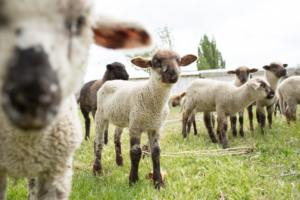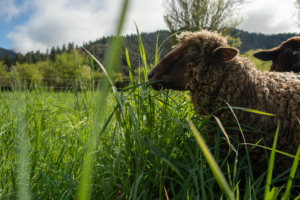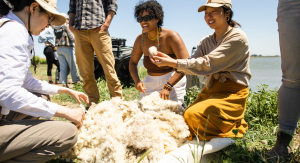Meet the Team leading the Climate Beneficial Fiber Partnership
Scientists
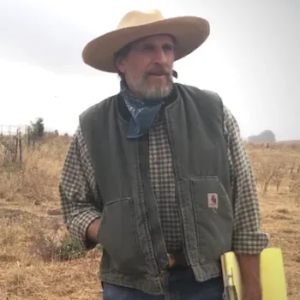
Dr. Jeff Creque is a co-founder of the Marin Carbon Project and the Carbon Cycle Institute, where he serves as Director of Rangeland and Agroecosystem Management. Jeff provides senior leadership on carbon farming and land management, informed by thirty-five years of applied experience and theoretical training. Jeff’s organizational affiliations include: Founding Board Member, Alliance for Local Sustainable Agriculture (Marin); Co-Founder, Bolinas-Stinson Beach Resource Recovery Project; Agricultural Director, Apple Tree International; Co-Founder, West Marin Compost Coalition. Jeff holds a PhD in Rangeland Ecology from Utah State University and is a California State Board of Forestry Certified Professional in Rangeland Management. You can contact Jeff at jcreque@carboncycle.org.
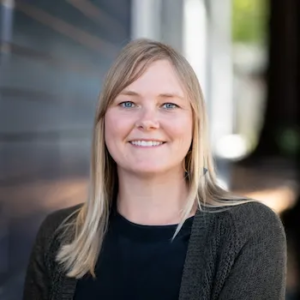
Lynette Niebrugge is the Lead in Carbon Farm Planning, Training and Education at the Carbon Cycle Institute where she focuses on building the capacity of land managers and agricultural conservation planners to conduct carbon farm planning and implementation. In partnership with Fibershed, Lynette is working to assist in developing an approach and implementable strategy for small farm carbon farm planning and implementation, including support on developing land-owner education. Lynette received her undergraduate degree from the University of Illinois in Natural Resources and Environmental Science and her Masters degree in Soil Science from California State Polytechnic in San Luis Obispo. She held a forestry position within the United States Forest Service for several years before joining the Marin Resource Conservation District in 2011 where she focused on education and implementation of carbon farming. She is a founding member of the Marin Carbon Project, a regional coalition of ranchers, land managers and government agencies devoted to supporting agriculture as a solution to climate change. You can contact Lynette at lniebrugge@carboncycle.org.
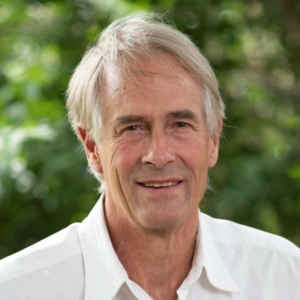
Keith Paustian is University Distinguished Professor in the Department of Soil and Crop Sciences and Senior Research Scientist at the Natural Resource Ecology Laboratory at Colorado State University. A major focus of his work involves basic and applied studies of soil organic matter dynamics and modeling, field measurement and development of assessment tools for soil carbon sequestration and greenhouse gas emissions from soils. He has published over 400 journal articles and book chapters. Previous and current research activities include development of models and inventory methodology used to estimate soil greenhouse gas (GHG) emissions for US national reporting to UNFCCC and development of a web-based tool (COMET-FarmTM) for estimating on-farm greenhouse gas (GHG) emissions and carbon sequestration used by USDA, NGOs, industry and agricultural producers. Professional service includes Coordinating Lead Author for the IPCC 2006 National Greenhouse Gas Inventory Methods and the IPCC 2003 Good Practice Guidance and three National Academy of Science committees (2010-11, 2018-19, 2021-23) related to land use, greenhouse gasses and climate change mitigation. He served as a member of the US Carbon Cycle Science Steering Group and has been a science advisor to greenhouse gas registries, including Verra/VCS, the Climate Action Reserve (CAR) and the California Air Resources Board. He is a Fellow of the Soil Science Society of America, recipient of the Soil Science Society of America’s Outstanding Research Award in 2015, 2019 winner of the Global Foodshot Groundbreaker Award and 2021 Reuters Hot List of Climate Scientists. You can contact Keith at keith.paustian@colostate.edu.
Technical Assistance Providers
California
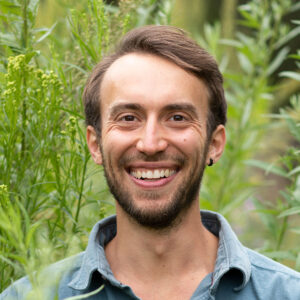
Mike Conover sees carbon farming and regenerative agriculture as essential strategies to address global climate change, rebuild healthy soils, and create more resilient regional economies around food and fiber. Mike is Fibershed’s Climate Beneficial™ Technician and he is a Carbon Farm Planner working with wool producers for the Climate Beneficial Fiber Partnership. He collaborates with many partners to promote land-based carbon drawdown and soil regeneration. Mike assists producers in having Carbon Farm Plans developed for their land, access funding sources to implement carbon farming practices, learn about their soil through soil sampling, and become Climate Beneficial Verified. He holds an M.S. in Ecological Design from the Conway School and has spent the past decade studying and practicing regenerative agriculture and sustainable land-planning. You can contact Mike at mike@fibershed.org.
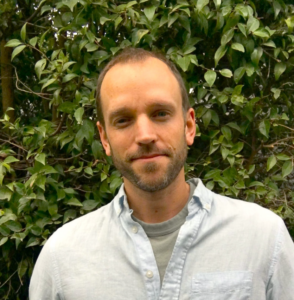 Noah Link joined CCI in 2023 as Carbon Farm Planner for the San Joaquin Valley, where he works with cotton producers throughout the region to plan and implement a range of carbon farming practices. In his work with the Climate Beneficial Fiber Partnership, he will be supporting cotton farmers in creating and implementing Carbon Farm Plans. Noah previously worked with the San Juan Islands Conservation District in Washington on fire & climate resilience, biochar, and forest carbon through ecological restoration, and has years of experience working with local food systems and sustainable agriculture as the co-founder of a large urban farm in Detroit, Michigan. He holds an M.S. in Agricultural, Food, and Resource Economics and a certificate in Forest Carbon Science, Policy, and Management from Michigan State University. You can contact Noah at nlink@carboncycle.org.
Noah Link joined CCI in 2023 as Carbon Farm Planner for the San Joaquin Valley, where he works with cotton producers throughout the region to plan and implement a range of carbon farming practices. In his work with the Climate Beneficial Fiber Partnership, he will be supporting cotton farmers in creating and implementing Carbon Farm Plans. Noah previously worked with the San Juan Islands Conservation District in Washington on fire & climate resilience, biochar, and forest carbon through ecological restoration, and has years of experience working with local food systems and sustainable agriculture as the co-founder of a large urban farm in Detroit, Michigan. He holds an M.S. in Agricultural, Food, and Resource Economics and a certificate in Forest Carbon Science, Policy, and Management from Michigan State University. You can contact Noah at nlink@carboncycle.org.
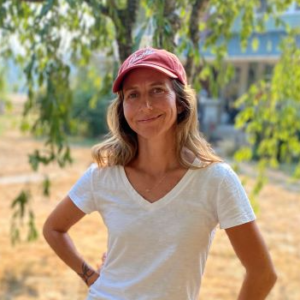
Alexandria Miranda is the California Regional Coordinator for the Climate Beneficial Fiber Partnership. She joined the Carbon Cycle Institute in 2023 as the San Joaquin Valley Regional Coordinator, guiding farmers and assisting Carbon Farm Planners through the creation of their Carbon Farm Plan. She holds a Bachelor of Science degree in Business Administration from California State University, Fresno and has been providing technical assistance and education to farmers as an Agricultural Conservationist with her local Resource Conservation District and USDA Natural Resources Conservation Service, since 2015. She was one of the first to write a Carbon Farm Plan in the San Joaquin Valley and practices carbon farming herself as the owner of Hen and Harvest Farm, a small farm of pasture-raised and rotationally grazed sheep, chickens and ducks in Turlock, California. Her focus is on cotton and she looks forward to working with growers to bring health back to their soils! You can contact Alexandria at amiranda@carboncycle.org.
Southeast (Georgia, North Carolina, Tennesse, Indiana)
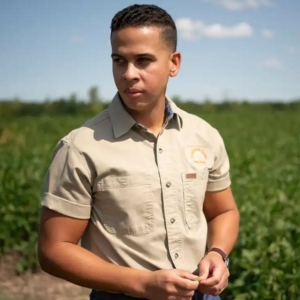
Kyle Bridgeforth is the Senior Cotton Specialist and Peer Transition Director and leads engagement work specifically supporting transitioning and beginning cotton producers for the Climate Beneficial Fiber Partnership. Kyle is also the owner and operating partner at Bridgeforth Farms, a fifth-generation row-crop agribusiness headquartered in Tanner, Alabama that focuses on using modern technology and agronomics to grow high-quality agricultural products. Beyond the farm, he works closely with several industry associations and companies including Bayer, John Deere, Foundation for Food & Agriculture Research, The Breakthrough Institute, and Office Chérifien des Phosphates (OCP Group). Kyle graduated with a degree in International Studies: Business and Economics from Morehouse College. Prior to farming, Kyle worked in the Executive Office of the President for the United States Trade Representative aiding the Agricultural Affairs team and the Trans-Pacific Partnership efforts.
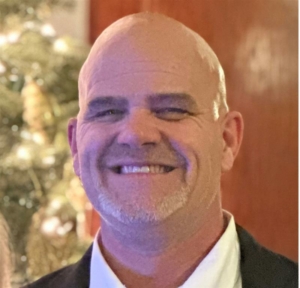
Greg Baker has a wide variety of experience in agriculture, ag education, and conservation. He was contracted with California – RCD to expand Healthy Soil Programs (HSP) to provide education on cover crops, carbon planning, climate influences, irrigation enhancements, and fallowing soils. He also worked with the State Water Efficiency Enhancement Program (SWEEP) to provide technical assistance. Greg has also consulted with California rice growers on design and implementation of Farm Wetlands Programs (FRP). This included helping with enhancing wetland buffers, wind breaks, and migratory staging sites. Greg’s role in the Climate Beneficial Fiber Partnership is to work with cotton farmers to create and implement Carbon Farm Plans. You can contact Greg at gbaker@seed2shirt.com.
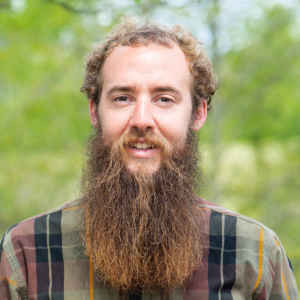
Thomas Leonard has been farming and teaching about regenerative agriculture for over a decade. He brings an eclectic background covering lots of production methods from farming independently with Modern Harvest Farms to managing large agricultural operations for Greenbriar Farms and Gaia Herbs. In addition to environmental sustainability Thomas has also focused on prioritizing social justice and empowering beginning farmers in his work. Thomas is excited to help improve profitability and open markets for cotton producers in North Carolina and Tennessee. Thomas is also the co-founder of Contour Lines, a nonprofit organization that has planted over 2.2 million trees with over 13,000 farmers. You can contact Thomas at tleonard@seed2shirt.com.
New York
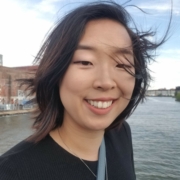 Bomin Kim grew up on Long Island, NY. Her interest in textiles was sparked by her parents’ dry cleaning and tailor business. Her diverse professional experience spans in conservation, land management, and forestry for Black Rock Forest, NYS Parks and Recreation, and several other non-profits in New York. Over the summer, she enjoys tending to her pollinator and pepper garden. Her goal at New York Textiles is to pivot toward developing a more sustainable and efficient carbon farming for local growers while deepening her knowledge in fiber agriculture. You can contact Bo at bkim.nytl@gmail.com.
Bomin Kim grew up on Long Island, NY. Her interest in textiles was sparked by her parents’ dry cleaning and tailor business. Her diverse professional experience spans in conservation, land management, and forestry for Black Rock Forest, NYS Parks and Recreation, and several other non-profits in New York. Over the summer, she enjoys tending to her pollinator and pepper garden. Her goal at New York Textiles is to pivot toward developing a more sustainable and efficient carbon farming for local growers while deepening her knowledge in fiber agriculture. You can contact Bo at bkim.nytl@gmail.com.
Northern Great Plains (Montana, South Dakota, and Wyoming)

Allison Cooley-Agee spent the first seven years of her life climbing on the backs of her parent’s horses to get a bird’s eye view of the land. Her early rides sparked a lasting curiosity about the ecology of the West. Her spirit of inquiry and observation of the land inspired her to pursue a career in soil health. She received a Bachelor’s of Science degree in Sustainable Food and Bioenergy Systems from Montana State University. Allison is a graduate of the first CREATE Coaching Cohort, an intensive regenerative agriculture coaching course offered by Integrity Soils. She is especially excited about this project to give producers the technical assistance and funding they need on the ground to make improvements to their land and business. You can usually find her backpacking in the Absaroka-Beartooth Wilderness, gardening, or reading her favorite novel with a cup of coffee. She lives in Big Timber, Montana, with her husband, two dogs, horses, and dairy animals. Allison can be reached at allisonc@ncat.org.
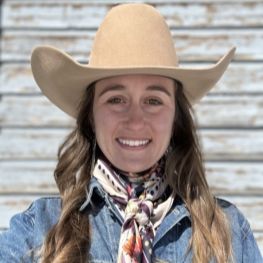 Danielle Duni is fueled by a lifelong passion for land stewardship, with roots in Colorado and experience on her family’s sheep and cattle ranch in Wyoming. This commitment drives her mission to ensure the resilience of working lands and the continued presence of producers in the Rocky Mountain West. She holds a graduate degree in Range Management from the New Mexico State University. When she’s not dedicating her time to supporting the wool industry, you can find her in the mountains, on the water and working towards her homesteading goals. You can contact Danielle at danielled@ncat.org.
Danielle Duni is fueled by a lifelong passion for land stewardship, with roots in Colorado and experience on her family’s sheep and cattle ranch in Wyoming. This commitment drives her mission to ensure the resilience of working lands and the continued presence of producers in the Rocky Mountain West. She holds a graduate degree in Range Management from the New Mexico State University. When she’s not dedicating her time to supporting the wool industry, you can find her in the mountains, on the water and working towards her homesteading goals. You can contact Danielle at danielled@ncat.org.
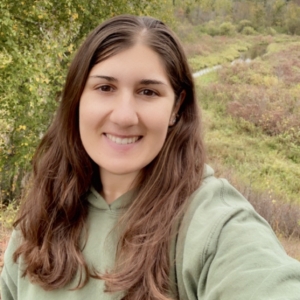
Alisha Horak is the senior agricultural conservation planner with the NCAT based in South Dakota, where she works with wool-growers throughout the Northern Great Plains region to plan and implement regenerative farming practices. Alisha previously worked at USDA-NRCS with producers to provide technical assistance on farming and ranching practices on the landscape, specifically shelterbelt renovations, cover crops, and prescribed grazing systems. She holds an M.S. degree from the University of Nebraska-Lincoln in Applied Ecology and a B.S. from University of Minnesota – Crookston in Natural Resource Management. Alisha currently lives in Central South Dakota on a small farm where she raises chickens, lambs, and cattle, as well as participates in local farmer’s markets. She is excited to work with and support other livestock producers through the Fiber Partnership. Alisha can be reached at alishah@ncat.org.
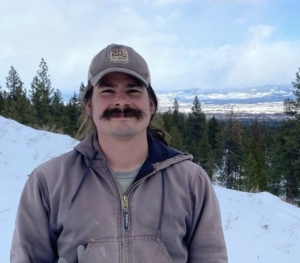
Tim Puczkowskyj is a Conservation Planner for NCAT, based out of Western Montana. With a degree in Environmental Science and years of experience managing Regenerative livestock operations, including his own, he brings hands on practical and technical advice to Woolgrowers of the Northern Great Plains. He is excited and passionate about doing his part to assist fellow ranchers meet their operational goals, open up new revenue sources, and keep land in agriculture production. Tim can be reached at timp@ncat.org.
Marketing, Design, and Sourcing
 Rebecca Burgess has two decades of experience working at the intersection of ecology, fiber systems, and regional economic development. She is the author of the best-selling book Harvesting Color, a bioregional look into the natural dye traditions of North America, and Fibershed: Growing a Movement of Farmers, Fashion Activists, and Makers for a New Textile Economy released in 2019. She has taught at Westminster College, Harvard University, and California College of the Arts. She also holds a new board position at the Livestock Conservancy and is serving on the leadership council of the Center for Regenerative Agriculture and Resilient Systems at Chico State University. You can contact Rebecca at harvestingcolor@gmail.com.
Rebecca Burgess has two decades of experience working at the intersection of ecology, fiber systems, and regional economic development. She is the author of the best-selling book Harvesting Color, a bioregional look into the natural dye traditions of North America, and Fibershed: Growing a Movement of Farmers, Fashion Activists, and Makers for a New Textile Economy released in 2019. She has taught at Westminster College, Harvard University, and California College of the Arts. She also holds a new board position at the Livestock Conservancy and is serving on the leadership council of the Center for Regenerative Agriculture and Resilient Systems at Chico State University. You can contact Rebecca at harvestingcolor@gmail.com.
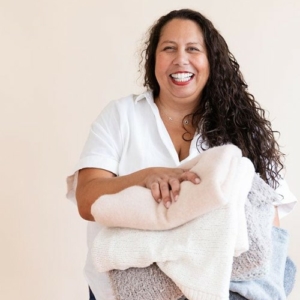
Rosalinda Cruz is Chief Operations Officer at Seed2Shirt and leads global operations across sales, farmer programs/initiatives, and apparel production for the Seed2Shirt team nationally and internationally. She has a personal mission to support a more diverse and inclusive sustainable fashion industry by filling the leadership & ownership gaps in the domestic apparel supply chain. She’s a consumer strategist, with extensive retail executive and entrepreneurial experience in business development; sustainable apparel; brand experience; and operations at top sustainable apparel brands like Eileen Fisher. Since moving to North Carolina, she has deepened her connection to domestic manufacturing and rounded out her 30+ years of experience by working within the domestic supply chain. As the lead in the Fiber Partnership’s Market Access work, Rosalinda will be leading strategic project marketing in direct collaboration with all program partners, as well as managing brand/farmer market access exchanges and annual events. She will also be interfacing with our farmer & corporate community groups to grow market access and uptake of the cotton produced from this program and long-term production programs of Seed2Shirt. Rosalinda can be reached at rcruz@seed2shirt.com.
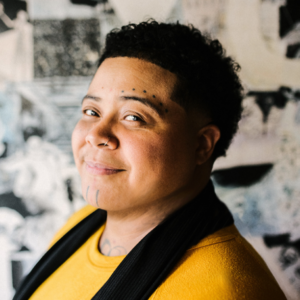
Deandra Eubanks is the Co-Founder, Chief Marketing Officer, and Director of Farm Programs at Seed2Shirt since 2019. He has spent his professional career intentionally aligning his work to being an advocate for equity, justness, and environmental & human relationships. He leads Seed2Shirt global Farmers Enrichment programs spanning 4-plus countries in Africa and 350,000 small hold farmers. He strategically leads development and planning of Seed2Shirts’ US Farmer Program and its land-based Pilot Farm initiatives of their vertical production hub, in North Carolina. In the Climate Beneficial Fiber Partnership, he is the Southeast region’s Director of Operations & TA Implementation Coordinator. He ensures that farmers and planners navigate the project with ease and alignment. You can contact Deandra at deubanks@seed2shirt.com.
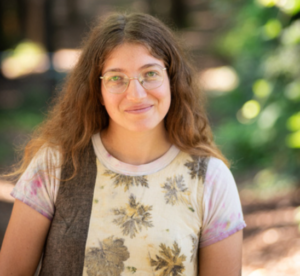
Nica Rabinowitz the Sales and Supply Chain Manager at Fibershed. She is a regenerative agriculture and closed-loop textile system advocate, researcher, and educator with experience supporting and developing farm to fabric supply chains. Her work since graduating with a BFA in fashion design from Parsons School of Design in 2015, has been rooted in community building, social justice, farming, and soil to soil textile creation and production. Nica holds a M.S. in Curriculum and Instruction and has taught people of all ages in the classroom, in the field, and in the boardroom. When Nica is not cultivating brand partnerships and supporting Climate Beneficial supply chains you can find her in the weeds on her homestead and living laboratory in the Blue Ridge Mountains. You can contact Nica at nica@fibershed.org.
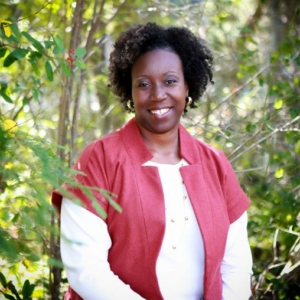
Tameka Peoples is a lifelong leader in the corporate and community service sector and is the National Program Director for Seed2Shirt. She started her journey in public service as a disabled veteran with 10 years of service in the Air Force, and became a non-profit founder whose programs and services supported thousands of local youth and veterans in STEM events and agriculture resources. She is an advocate for her community and founded Seed2Shirt, an organization focused on small-batch vertically integrated, ethical apparel production and boutique global organic cotton merchant company. The full cotton-to-apparel value-chain is Tameka’s passion and the purpose behind her degree in IT/Communication from the University of Phoenix, as well as her professional certifications in Textile 101 from GASTON College, and USDA Veteran Sustainable Farming. Tameka is also a member of multiple national and international farmer associations such as: National Black Farmers Association, Kansas Black Farmers Association, The LIFE Project, and The Black Sustainability Network; all of which are focused on supporting historically underserved growers and their needs and regenerative transitions. Tameka can be reached at cbfp@seed2shirt.com.
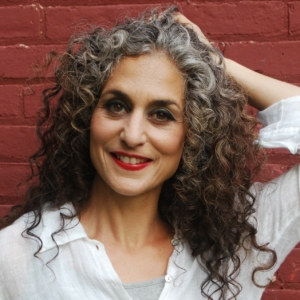 Laura Sansone is a textile designer, activist, and consultant. She is the creator of New York Textile Lab, a design and consulting company that supports environmentally responsible textile methods, and regional systems of production. Laura is currently a Part-Time Assistant Professor of Textiles at Parsons School of Design. She has developed initiatives that bring NY designers and farmers together with the goal of creating a decentralized, regenerative textile supply network. Textile Lab’s NYS Regional Yarn Sourcebook is a collection of locally sourced and produced yarns that are intended to link apparel, product and interior designers to the regional network of farms and fiber processing mills. She is the founder of the Carbon Farm Network, a purchasing cooperative that connects designers to Climate Beneficial™ fibers that are grown on NYS farms practicing Carbon Farming on their lands. Laura is proud to be working with independent farmers to help lay the groundwork for healthy, resilient textile ecosystems. You can contact Laura at info@newyorktextiblelab.com
Laura Sansone is a textile designer, activist, and consultant. She is the creator of New York Textile Lab, a design and consulting company that supports environmentally responsible textile methods, and regional systems of production. Laura is currently a Part-Time Assistant Professor of Textiles at Parsons School of Design. She has developed initiatives that bring NY designers and farmers together with the goal of creating a decentralized, regenerative textile supply network. Textile Lab’s NYS Regional Yarn Sourcebook is a collection of locally sourced and produced yarns that are intended to link apparel, product and interior designers to the regional network of farms and fiber processing mills. She is the founder of the Carbon Farm Network, a purchasing cooperative that connects designers to Climate Beneficial™ fibers that are grown on NYS farms practicing Carbon Farming on their lands. Laura is proud to be working with independent farmers to help lay the groundwork for healthy, resilient textile ecosystems. You can contact Laura at info@newyorktextiblelab.com
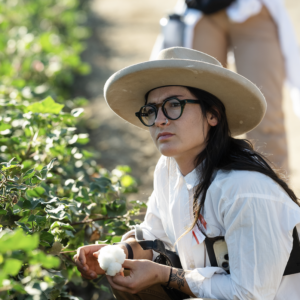 Siena (Shep)ard (they/ them) is the Director of the Climate Beneficial Verification (CBV) Program at Fibershed and is responsible for scaling the strategic direction of the CBV program to align with market demands for measurable, traceable, and holistic climate solutions. Within the Climate Beneficial Fiber Partnership, they work closely with the Carbon Cycle Institute (CCI) and regional planners to ensure execution of measurement, monitoring, and verification processes. Shep has worked across the academic, non-profit, and startup space, from New York to India, with a focus on building frameworks and tech tools to advance responsible fiber systems. Over the last decade they have worked with small innovators to large sector players including Patagonia, Parsons School for Design, Generation Conscious, the Sustainable Apparel Coalition, and Textile Exchange. Shep’s passion for regeneration began after living next to a small-scale cattle rancher in Colorado and believes strongly in reconnecting the narrative of communities and ecosystems in our contemporary sustainability discourse. You can contact Shep at siena@fibershed.org.
Siena (Shep)ard (they/ them) is the Director of the Climate Beneficial Verification (CBV) Program at Fibershed and is responsible for scaling the strategic direction of the CBV program to align with market demands for measurable, traceable, and holistic climate solutions. Within the Climate Beneficial Fiber Partnership, they work closely with the Carbon Cycle Institute (CCI) and regional planners to ensure execution of measurement, monitoring, and verification processes. Shep has worked across the academic, non-profit, and startup space, from New York to India, with a focus on building frameworks and tech tools to advance responsible fiber systems. Over the last decade they have worked with small innovators to large sector players including Patagonia, Parsons School for Design, Generation Conscious, the Sustainable Apparel Coalition, and Textile Exchange. Shep’s passion for regeneration began after living next to a small-scale cattle rancher in Colorado and believes strongly in reconnecting the narrative of communities and ecosystems in our contemporary sustainability discourse. You can contact Shep at siena@fibershed.org.
NCAT Project Management
 Danielle Duni is the co-manager for the Climate Beneficial Fiber Partnership and coordinator for the Northern Great Plains team. She is fueled by a lifelong passion for land stewardship, with roots in Colorado and experience on her family’s sheep and cattle ranch in Wyoming. This commitment drives her mission to ensure the resilience of working lands and the continued presence of producers in the Rocky Mountain West. She holds a graduate degree in Range Management from the New Mexico State University. When she’s not dedicating her time to supporting the wool industry, you can find her in the mountains, on the water and working towards her homesteading goals. You can contact Danielle at danielled@ncat.org.
Danielle Duni is the co-manager for the Climate Beneficial Fiber Partnership and coordinator for the Northern Great Plains team. She is fueled by a lifelong passion for land stewardship, with roots in Colorado and experience on her family’s sheep and cattle ranch in Wyoming. This commitment drives her mission to ensure the resilience of working lands and the continued presence of producers in the Rocky Mountain West. She holds a graduate degree in Range Management from the New Mexico State University. When she’s not dedicating her time to supporting the wool industry, you can find her in the mountains, on the water and working towards her homesteading goals. You can contact Danielle at danielled@ncat.org.
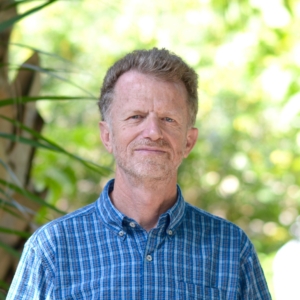
Mike Morris is Project Director for the Climate Beneficial Fiber Partnership. He has launched and led over 30 projects at NCAT on water conservation, soil health, organic farming, local food, solar energy, crop insurance reform, and many other topics, and he has worked from Montana, California, North Carolina, Texas, Colorado, and (currently) Utah. Mike holds a Ph.D. in Philosophy from the University of Pittsburgh, and his recent work has focused on regenerative agriculture and its potential to mitigate water scarcity and climate change. He’s excited about working with a talented team that has a clear vision: creating a robust consumer market for climate-smart fiber, textiles, and clothing. You can contact Mike at mikem@ncat.org.
Ilona Wilde is the Operations Manager for the Climate Beneficial Fiber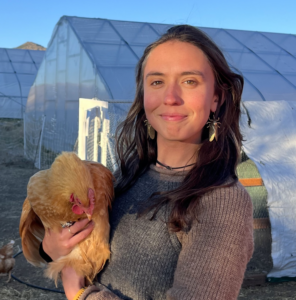 Partnership. She holds a degree in Ecology and Evolutionary Biology and has a background in habitat restoration and land management policy. Ilona has worked on multiple small scale regenerative and Community Supported Agriculture (CSA) farms across the country, as well as the Forest Service and Bureau of Land Management in Montana, and the National Park Service in Texas. She has also worked on the Nature Conservancy’s 60,000-acre Matador Ranch Grassbank cooperative in Malta, Montana to improve rangeland management and wildlife habitat. Ilona is an avid gardener, potter, and knitter. She is excited to tie in her work experience and love for agriculture to support the implementation of conservation practices across the Partnership. You can contact Ilona at ilonaw@ncat.org.
Partnership. She holds a degree in Ecology and Evolutionary Biology and has a background in habitat restoration and land management policy. Ilona has worked on multiple small scale regenerative and Community Supported Agriculture (CSA) farms across the country, as well as the Forest Service and Bureau of Land Management in Montana, and the National Park Service in Texas. She has also worked on the Nature Conservancy’s 60,000-acre Matador Ranch Grassbank cooperative in Malta, Montana to improve rangeland management and wildlife habitat. Ilona is an avid gardener, potter, and knitter. She is excited to tie in her work experience and love for agriculture to support the implementation of conservation practices across the Partnership. You can contact Ilona at ilonaw@ncat.org.

